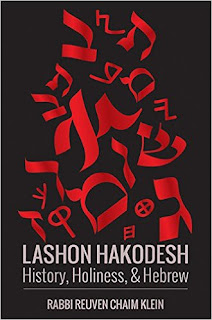Rabbi Mordechai Fachler z”l
Renana Publishers / 274 pages
Just in time for Yom Tov!
Hayom Harat Olam is a very beautiful collection of the late[1]
Rabbi Mordechai Fachler’s sermons, complied primarily by his son, David Fachler.
It contains dozens of easy to read essays covering all the holidays of Tishrei.
The book is divided into eight different themes such as, “The Rainbow Covenant”,
“Love and Fear”, “Beauty”, “Consolidation, Preservation & Growth”, and
more. The entries are short (as a sermon compilation should be!), generally two
to four pages long. The material is personable, inspiring, and to the point. It
may very well be the clearest sermon compilation I have ever seen. Plenty of
divrei Torah and vertlach that you can say over at the table.
Here’s a sample:
First Night
Sukkot
Ahavah – Abraham
As the month of Tishrei moves from
the serious first ten days into the pure joy of the Festival of Sukkot, so too
does the theme of ahavah veyirah – love and fear – take on a more joyous
and festive perspective.
As part of the celebration of
Sukkot and the joyous ritual of sitting in the sukkah, we have a
long-standing tradition of welcoming into the sukkah the seven special Ushpizin–
guests. These guests are invited, each one on a separate day, and they
constitute the seven famous characters of Biblical history who parallel the
seven basic qualities and Divine emanations with which G-d looks after the
world.
The first of these Ushpizin, our
special guest for the first day of Sukkot, is the founding father of Judaism,
our forefather Abraham. He brings into the sukkah his special quality of
kindness, love, and hospitality. In our theme this certainly parallels the ahavah
side of our twin equation.
The festival of Sukkot, with its
concept of Divine protection, also links to Abraham and indeed Talmudic
literature refers to it as Abraham's festival. Abraham was re-assured by G-d
that he would always be protected and this is the source for the wording at the
end of the first paragraph of the Amidah – Protector of Abraham. We could
certainly link the two concepts. Because Abraham was so involved in reaching
out with love to his fellow man and bringing him closer to his Creator, he was
automatically at risk of the negative elements and influences of the broader
heathen community. This then evoked a response in Hashem to guarantee Abraham's
safety.
Abraham is our ultimate role model
of ahavah and we need to direct our personal vision and motivation of ahavah
along the guidelines provided by his behavior. Abraham was not only a model of ahavah
in his relationship with his fellow-man, in the unique form of love and
kindness and hospitality that he is renowned for. Also in the way he related to
G-d, Abraham is called a chassid portraying kindness in his loyalty and
obedience to Hashem's word.
Of course Abraham was not
exclusively ahavah-focused and indeed the toughest trial of his life was
the Akeidah – near sacrifice – of his son Isaac. Even his most powerful
love towards his son had to give way to his G-d-fearing character of obedience
to fulfill Hashem's command which went against all human logic of moral,
ethical and loving behavior. Having successfully passed this yirah test,
Abraham reverted to his natural ahavah mode when he voluntarily and
lovingly offered up the ram in place of his son. [...continues in the original]
This book will definitely my shul companion over the Tishrei
season.
For more on the book, and to order: https://highholidaysbook.wordpress.com/
[1] Rabbi
Mordechai Fachler z”l first served in a number of rabbinical positions in Johannesburg,
South Africa. In the late 1990s, Rabbi Fachler left Johannesburg for London,
and served as the rabbi of Shomrei Hadath Synagogue in West Hampstead, among
other positions of communal leadership. He was a therapist, counselor, and a renowned
orator, among other talents.


